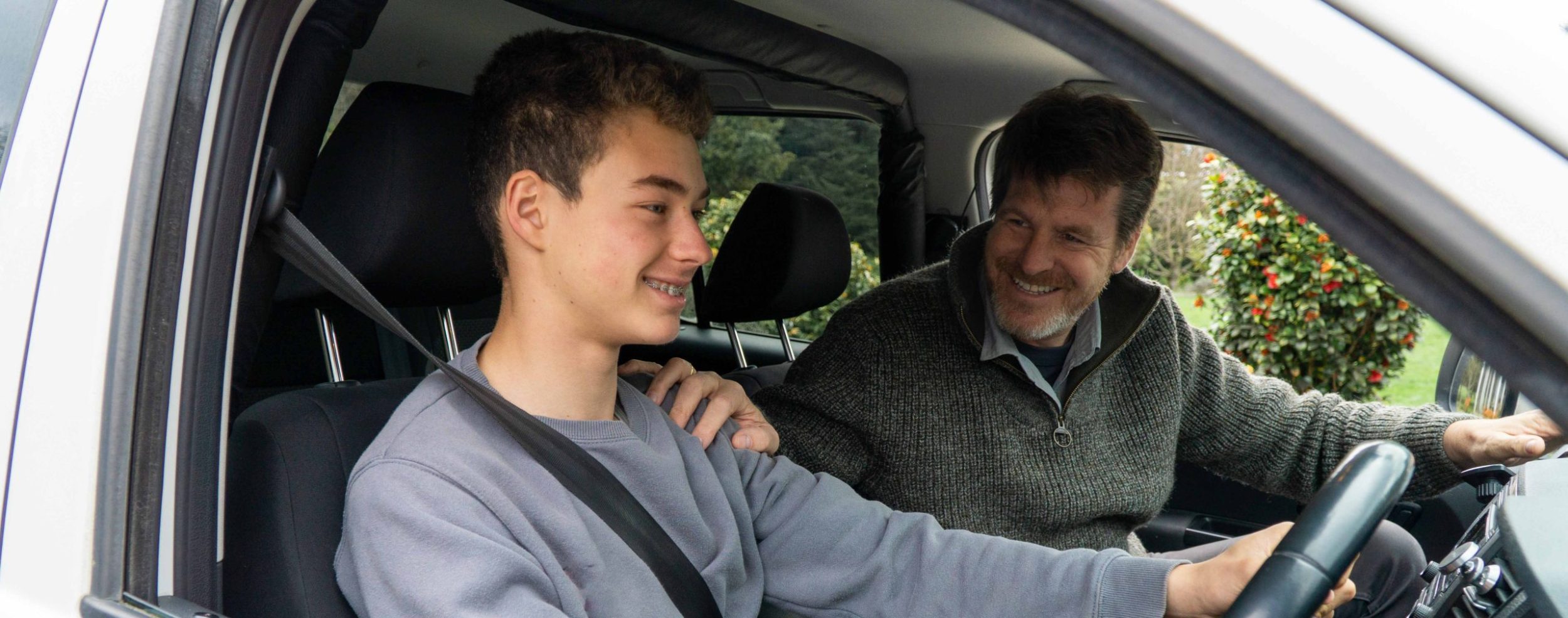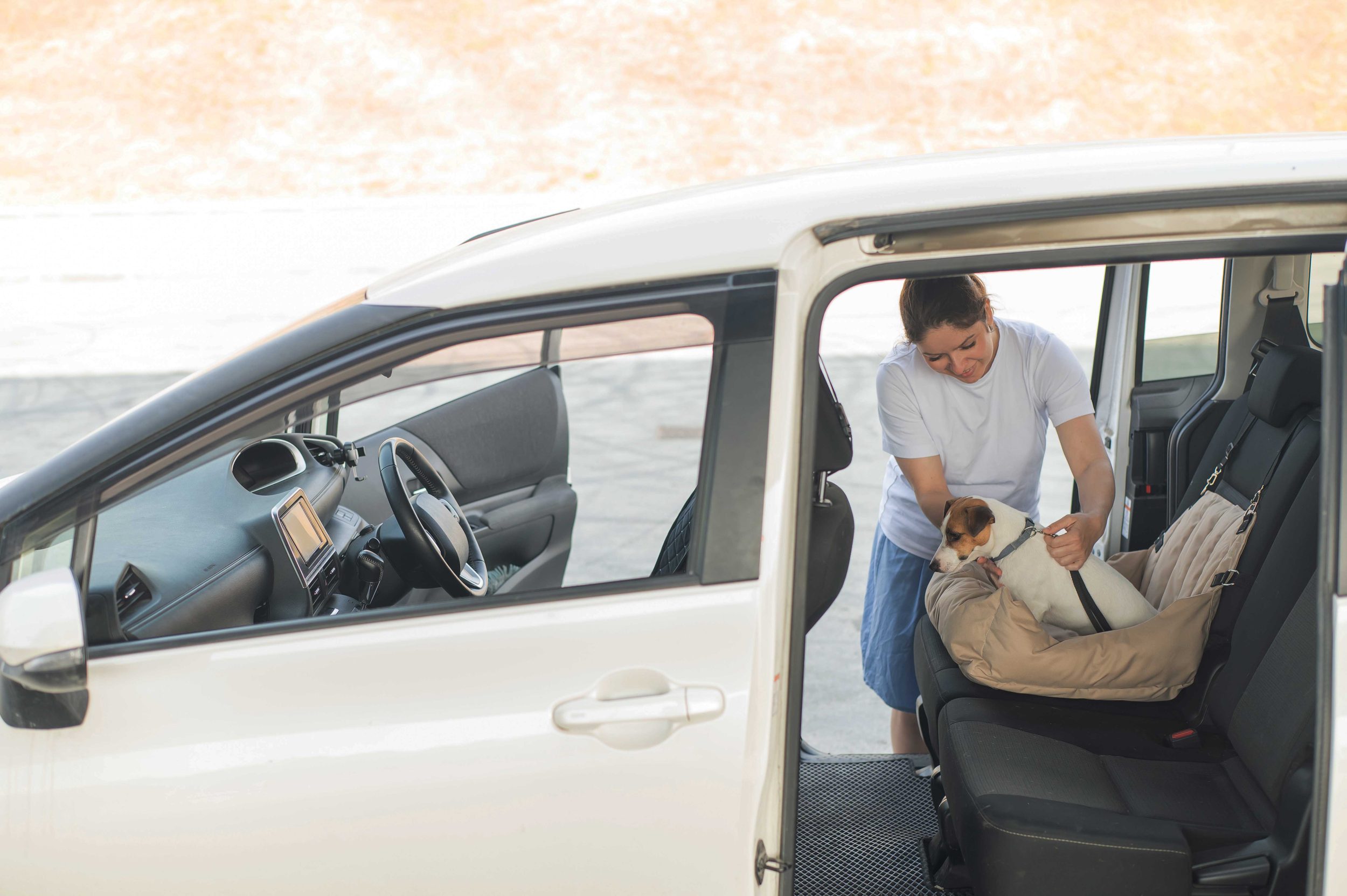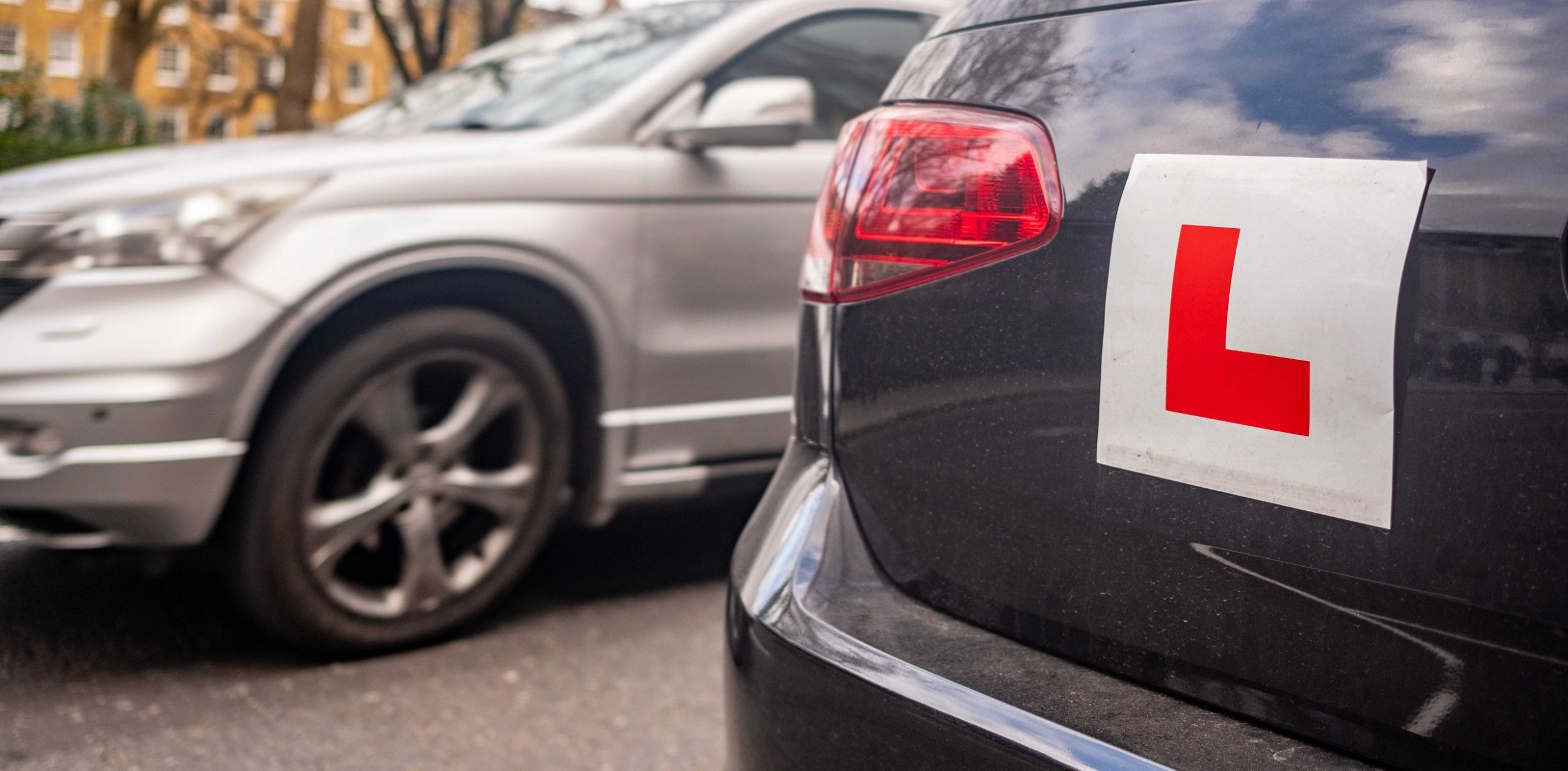Learning to drive is an exciting milestone, but there is a lot of practice involved if you want to pass your test. Practising with a parent outside of driving lessons is one of the most common and cost-effective ways to gain experience behind the wheel.
Whether you’re a learner planning on getting your parents help for private driving practice, or a parent wondering how best to help your child prepare for their driving test, this guide has everything you need to know about private practice.
Can you learn to drive with your parents?
Yes, you can learn to drive with your parents. Whilst most learner drivers combine driving lessons with a professional instructor and private practice with a parent or guardian, some learners choose to learn entirely through private driving practice.
So long as both the learner and the supervising driver meet the legal requirements set out by the insurer, practising with a parent can be a great way to build confidence and learn driving skills.
What are the rules for private driving practice?
When it comes to learning to drive via private practice, there are specific legal requirements for the learner, the supervising adult, and the car being used. You should follow these rules to ensure that you are compliant and will be safe on the roads (some insurers set out different criteria to the law, at Dayinsure our rules are as follows).
Rules for the learner driver:
- Hold a current provisional GB driving licence
- Be aged between 17 and 50 years old (subject to lending criteria)
- Be a permanent UK resident
- Have permission to drive the vehicle you’re learning to drive in
- Must meet the minimum eyesight rules as listed on the gov.uk website
- Have the correct learner driver insurance
Rules for the supervising driver:
- Be between 25 and 75 years of age
- Have held a full GB driving licence for at least 3 years
- Cannot use a mobile phone whilst supervising the learner driver
- Know and be able to apply the rules of the Highway Code
- Aside from the above, it doesn’t matter if the supervising driver is a parent, friend, or other relative, as long as they’re qualified to drive the type of vehicle the learner is learning in (for example, they must have a manual car licence if they’re supervising in a manual car).
Rules for the car:
- Be registered in the UK with the DVLA
- Must be taxed and have a valid MOT
- Be safe and road worthy
- L plates must be clearly displayed on the front and back of the car
- Have a current market value of less than £40,000
- Have no more than 7 seats (including the driver’s)
- Not be modified
- Not be a hire or rental vehicle
For further details, take a look at our full acceptance criteria document.
Pros and cons of learning to drive in your parents’ car
Whilst doing private driving practice with a parent has many benefits, it might not be the right choice for everyone.
Pros
- You might feel more comfortable with your parent in the car and in a car you’re more familiar with
- More flexible schedule for practising
- Can save money on driving lessons with an instructor
- Extra driving time helps to reinforce what you learn in your lessons
- More time to build confidence behind the wheel in a low-pressure environment
Cons
- Parents may pass on bad driving habits
- Car likely won’t have dual controls
- Parents may not be as up to date as driving instructors on road laws or test requirements
- Can lead to arguments
- Risk of having no formal/expert driving guidance if solely practising with parents
Tips for learning to drive with your parents
As a learner driver, making the most of your private driving practice sessions is key to building confidence and skill on the roads.
Practise good habits
Start every session with the basics – cockpit drill, checking mirrors and blindspots, signalling before moving off, keeping your eyes on the road. These good habits lay the foundations for safe and confident driving.
Set goals
It’s a good idea to have something specific in mind you’d like to practice for each session. Whether it’s roundabouts, hill starts or driving test manoeuvres, this can help to keep your learning focussed.
Expect to make mistakes
Mistakes are part of the learning process, so you shouldn’t let them knock your confidence. You can view mistakes as further opportunities to learn and improve on your driving skills.
Stay calm
Driving with a parent can often be tense due to differing opinions and familiarity with each other. Try to stay calm and focused on your driving as much as you can.
Be open to feedback
You should listen to your parent’s feedback, but also balance this with taking on board what your driving instructor has to say (if you have one).
Review each session
It’s a good idea to write down what you’ve been practising in each session, including what you found hard and what you want to focus on next. This can be useful to take to your driving lessons to help the instructor know what you do or don’t need to practice more of.
Check out Stella’s top tips on TikTok
Stella recently passed her driving test with the help of private practice with her mum. Find out what her top tips for private practice with your parents are.
@dayinsure Learning to drive? Check out Stella’s top tips for practising with your parents 👉🏼 Did you know the DVSA recommends at least 22 hours of private practice outside of your lessons? 👀 Get more hours behind the wheel with Dayinsure’s affordable and flexible learner cover 🚙✨ Save money on your policy by downloading our app 📲 @Driving Test Success #learnerdriver #learntodrive #learningtodrive #learner #driving #drivinglesson #drivinglessons #privatepractice #car #carinsurance #learnerinsurance ♬ Countless – Official Sound Studio
Tips for teaching your child to drive
If you’re a parent supervising your child on private driving practice, your role is vital in shaping your child’s driving habits. These are our top tips for how to keep things safe and productive.
Take out learner driver insurance
You shouldn’t assume your child is automatically covered under your car insurance as this often isn’t the case. Taking out dedicated learner driver insurance is often cheaper and avoids risking your no claims bonus.
Follow the rules
It is illegal to use a mobile phone whilst supervising private practice, and you are also not allowed to take your child on the motorway unless you’re an instructor or in a dual-control car. For the full list of rules for supervising a learner driver, you can find official guidance on the gov.uk website.
Start with a private place
You should focus on private places to practice driving where the learner driver won’t feel any pressure, such as quiet car parks or empty residential roads. This will help your child to build confidence without as much pressure from other road users.
Consider the time of day
Avoid practising during rush hours and busy school runs. A good time of day to practise is early morning or weekends as these can often provide a calmer learning environment. You should also take into account daylight and road conditions when taking your child out in the early stages of their learning to drive journey.
Plan ahead
Before you set off, make sure you both know what you’ll be practising and where. Having a route and a goal makes for more effective sessions and reduces the chances of any arguments.
You can also consider the directions that you are going to give your child. You should make sure to give them lots of notice before you want them to do something. For example, instead of asking them to turn right immediately as the turning comes up, you can help them by giving them more notice saying ‘turn right at the end of the road’.
Patience is key
Your child is likely only at the start of their learning to drive journey, so patience is key. Expect mistakes and don’t lose your temper. This will help to make your child feel more at ease when you take them out.
Set a good example
If you’re known to push the speed limits, forget to signal, or have other bad driving habits, be aware that your child may pick up on these and copy you. When you are driving you should make sure you are setting a good driving example and following the Highway Code, especially when your child is a passenger.
Don’t make assumptions
What can seem obvious to you might not be obvious to your child. They will be learning lots of things for the first time on this journey so you should take time to explain things clearly, step-by-step, and go over anything they might seem unsure of.
Don’t get agitated
Staying calm helps your child to stay focussed. You getting frustrated can lead to stress which will make it harder for your child to concentrate and learn how to drive effectively.
Don’t talk down to your child
Make sure you are encouraging your child with constructive advice rather than criticizing. This will help them to feel supported rather than judged.
Get cover for private driving practice with Dayinsure
If you’re planning to practice driving in a family car, make sure you have the correct learner driver insurance. Dayinsure offers flexible and affordable learner driver insurance that’s perfect for short-term private practice driving.
Whether it’s for daily sessions or getting in a few extra hours before your test, our cover can be tailored to suit your needs, with insurance available from 1 day up to 5 months. Find out more about our learner insurance here and get a quote today.



